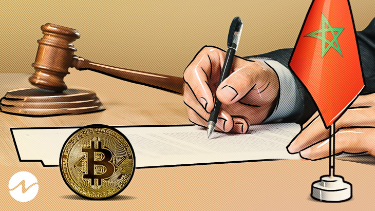Morocco’s measure may not be a ban but rather a welcoming policy.
Anti-terrorism funding and money laundering are topics to be addressed in the measure.
According to the Central Bank of Morocco governor, the bank is now working on a crypto regulatory law.
According to reports from the governor of Bank Al-Maghrib, Abdellatif Jouahri, the bank’s committee is developing the appropriate framework for crypto regulation.
Best Practises For Crypto Regulation
The laws are shaped by measures that have been negotiated with the World Bank and the International Monetary Fund. In March, according to earlier reports, the Moroccan central bank met with the central banks of Sweden, France, and Switzerland, as well as two major financial organizations, to explore the best practices for crypto regulation.
Morocco’s measure may not be a ban but rather a welcoming policy that aims to safeguard consumers while promoting new ideas and technology. Anti-terrorism funding and money laundering are two of the most important topics to be addressed in the measure. A lack of legislation and regulation, according to Jawhari, prevents the government from embracing cryptocurrency.
Recently, BAM addressed the fact that the cryptocurrency industry in the nation is becoming more popular, according to Finbold. Additionally, the bank has been careful to educate customers about the dangers of investing in cryptocurrencies.
In 2017, the country barred the trade of Bitcoin. Since the asset’s price generally rose over the past several years, demand has grown. Since its popularity had risen dramatically, the government was obligated to take notice of it.
In addition, the IMF has urged governments to create a framework for regulating cryptocurrency. The International Monetary Fund (IMF) has also cautioned them of the risks of making cryptocurrencies such as Bitcoin official money in the country. El Salvador has been urged by the International Monetary Fund (IMF) to discontinue using Bitcoin as legal money.

